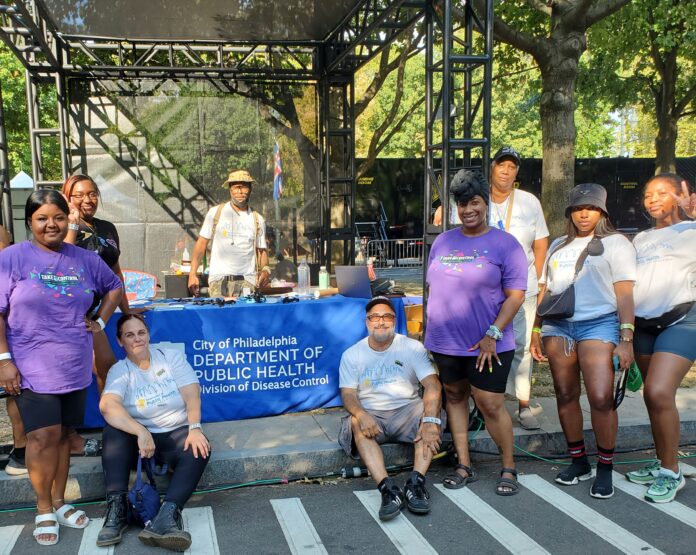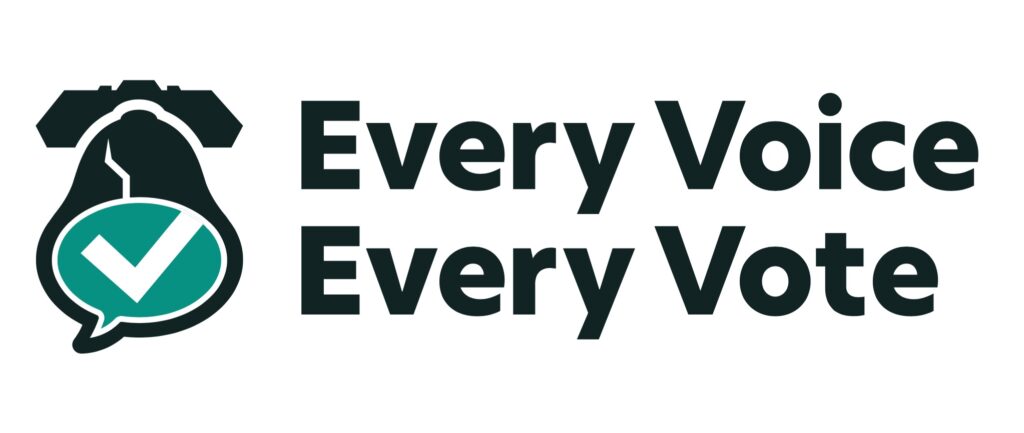
Two public health initiatives have provided more than 800,000 free condoms to Philadelphians this year. Organizers hope to give out one million.
Philly Keep on Loving and Take Control Philly — programs aimed at removing barriers to sexual wellness by making condoms, testing, PrEP, PEP and other resources more accessible — have been working since Jan. 1 to meet the goal.
“We’re just excited to reach certain milestones,” said Charles Gregory Postell, communications and policy coordinator for the Philadelphia Department of Public Health, who has worked with the department since 2020. “It was kind of a personal challenge or goal for myself to try to reach more people.”
Postell believes the city distributed approximately 700,000 condoms in 2023. Seeing the need and the city’s ability to expand outreach, he decided to think big for this year by tapping into programs that are already reaching vulnerable populations.
Philly Keep on Loving is an online platform that initially launched as a media campaign to raise awareness about HIV testing and prevention. It now offers free HIV and STI test kits, telePrEP, other free sexual health resources — all from an online hub. Condom and lube kits, testing kits, and medications can be picked up at multiple sites citywide or ordered online to be delivered via discreet packaging. The resources are available at no cost.
Take Control Philly is the youth-centered sibling of the Keep on Loving program. Young people ages 13 through 19 can receive free services — including condoms, testing and information about medical services — through the initiative.
The World Health Organization states that condoms — when used correctly and consistently — are the most effective method of preventing most STIs, including HIV. But young people are less likely to use them than previous generations. Medical advances — like long-term birth control options and medications that prevent STIs — are two of the reasons sexually-active youth aren’t reaching for condoms. But 30% of youth worldwide report using neither a condom nor birth control.
And other, more concerning reasons also play a part in avoiding condoms — including fewer fears regarding the risk of contracting HIV and less sex education in schools nationwide.
“When used properly and consistently, condoms are highly effective in preventing STIs and STDs,” said Postell. “Since the HIV crisis elevated condom use in 1990, it’s estimated the practice has averted approximately 117 million new HIV infections worldwide.”
This, Postell explained, is one of the reasons free condom distribution is so crucial.
Philadelphia was named as the city with highest STI rates in the country — with youth and LGBTQ+ populations at the highest risk. This, some experts believe, is due to socioeconomic barriers to quality healthcare — such as preventative measures (like condoms), testing and treatment.
Postell said he is unapologetically serving his community in this role. He noted that Black men are continually negatively targeted for being “disruptive” in the community — but being a Black man in leadership shows a contrast to that narrative and allows him to be sure that the city’s services and programs are inclusive to the entire community.
In Pennsylvania, all minors have the right to receive reproductive health care — including contraception, like birth control medications — even without parental consent. The one exception is abortion care, which requires consent from one parent or guardian.
But without parental consent, minors can still receive sexual health care services — including testing and treatment for STIs and HIV, emergency contraception, emergency care for sexual assault, IUD and birth control administration, pregnancy testing and prenatal care, and other related services.
Programs like Take Control Philly and screening hubs in local high schools make it easier for teens throughout the city to receive that care.
Through the city’s community partnerships, Philadelphia has over 100 walk-up condom distribution sites — including universities, wellness resource centers, hospitals, bars and clubs, and nonprofit organizations.
Through Take Control Philly, young people can customize online orders to receive flared-tipped, ribbed, extra large, latex-free, or a variety pack of condoms. They can also choose whether or not to receive FC2 internal condoms — which are inserted into the vagina or anus as a form of birth control and STI protection. The condoms come in kits that include water-based lubricant, instructions for proper use, and a list of the city’s sexual health centers.
“A healthier Philly that can engage safely and confidently in sexual activities is a Philly that will thrive on every level,” said Postell, who is confident the city will reach its end-of-year goal.
“That’s the million dollar question,” he said. “I do believe we have the ability to do it. That would be a great Christmas surprise, right?”

